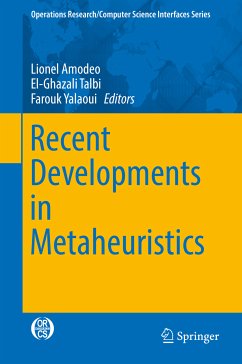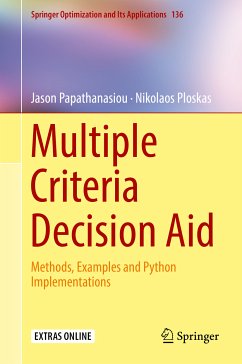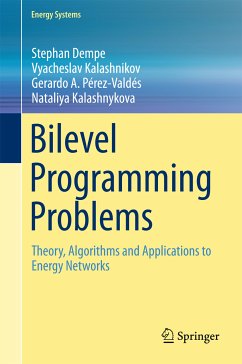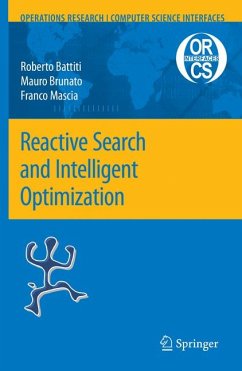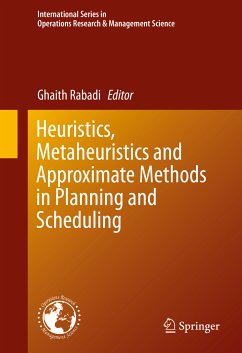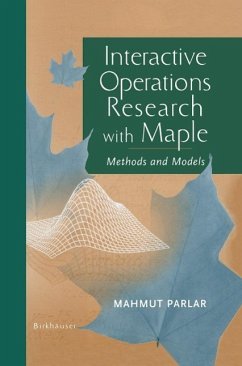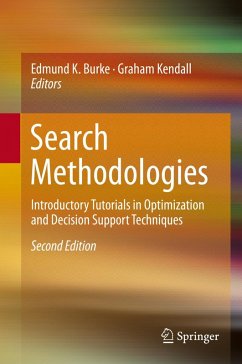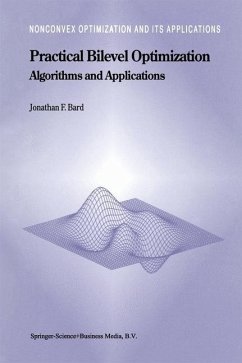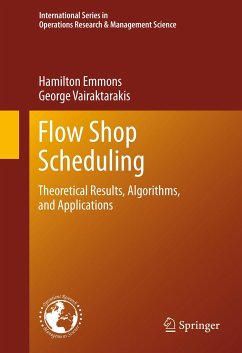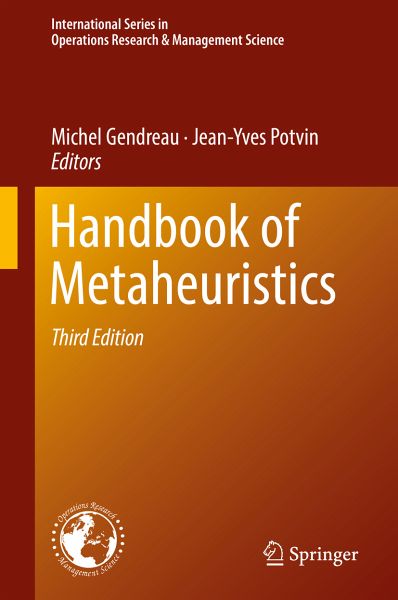
Handbook of Metaheuristics (eBook, PDF)
Versandkostenfrei!
Sofort per Download lieferbar
152,95 €
inkl. MwSt.
Weitere Ausgaben:

PAYBACK Punkte
76 °P sammeln!
The third edition of this handbook is designed to provide a broad coverage of the concepts, implementations, and applications in metaheuristics. The book's chapters serve as stand-alone presentations giving both the necessary underpinnings as well as practical guides for implementation. The nature of metaheuristics invites an analyst to modify basic methods in response to problem characteristics, past experiences, and personal preferences, and the chapters in this handbook are designed to facilitate this process as well. This new edition has been fully revised and features new chapters on swar...
The third edition of this handbook is designed to provide a broad coverage of the concepts, implementations, and applications in metaheuristics. The book's chapters serve as stand-alone presentations giving both the necessary underpinnings as well as practical guides for implementation. The nature of metaheuristics invites an analyst to modify basic methods in response to problem characteristics, past experiences, and personal preferences, and the chapters in this handbook are designed to facilitate this process as well. This new edition has been fully revised and features new chapters on swarm intelligence and automated design of metaheuristics from flexible algorithm frameworks. The authors who have contributed to this volume represent leading figures from the metaheuristic community and are responsible for pioneering contributions to the fields they write about. Their collective work has significantly enriched the field of optimization in general and combinatorial optimization in particular.
Metaheuristics are solution methods that orchestrate an interaction between local improvement procedures and higher level strategies to create a process capable of escaping from local optima and performing a robust search of a solution space. In addition, many new and exciting developments and extensions have been observed in the last few years. Hybrids of metaheuristics with other optimization techniques, like branch-and-bound, mathematical programming or constraint programming are also increasingly popular. On the front of applications, metaheuristics are now used to find high-quality solutions to an ever-growing number of complex, ill-defined real-world problems, in particular combinatorial ones. This handbook should continue to be a great reference for researchers, graduate students, as well as practitioners interested in metaheuristics.
Dieser Download kann aus rechtlichen Gründen nur mit Rechnungsadresse in A, B, BG, CY, CZ, D, DK, EW, E, FIN, F, GR, HR, H, IRL, I, LT, L, LR, M, NL, PL, P, R, S, SLO, SK ausgeliefert werden.



